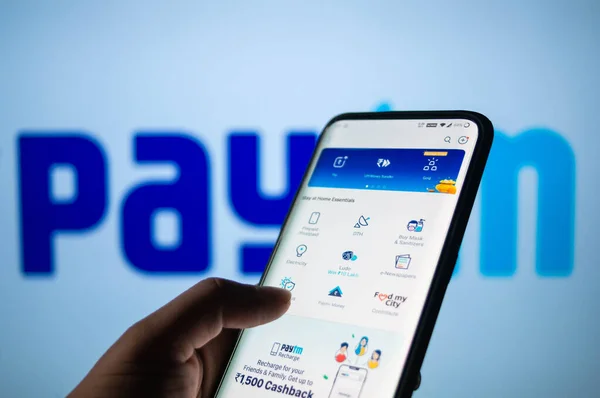Though the growth in MSME activity and the MSME credit offtake thereof has been tepid for almost two years, MSME continues to be the buzz word not only in India but in many parts of the globe if an economy has to rebound and sustain itself. Governments have been pushing Financial Institutions including Banks to reach out to MSMEs, considering their importance to contribution in GDP, employment generation and their overall contagious impact on other streams of well-being, to make credit available to them. Various SME initiatives are being/have been launched in different countries viz; ‘MUDRA’ in India, ‘Kafalah’-a loan guarantee programme in Saudi Arabia or ‘SME Masterplan’ in Malaysia.

Talking about SMEs/MSMEs in our country, there is no gainsaying that MSMEs constitute nearly 95 percent of total industrial units in our country and provide employment to more than 40 percent of the total workforce. With rising unemployment and declining GDP, the SME sector is back in limelight. In order to ensure that the MSME sector gets requisite support, the GOI is creating a lot of conducive infrastructure by making required changes to the legal/policy framework. Various skill development programmes have been initiated coupled with easing out of access to credit & access to information.
MSMEs form a vital cog of the Indian economy and the GOI is placing a lot of emphasis on MSME financing. Whatever were the hidden stress in MSME have been fully recognized and re-capitalization of Banks by the GOI will certainly facilitate in take-off of growth. In a landmark step to ease access to MSME credit, the GOI had launched in the last FY ‘PSBLoanin59 minutes.com’ whereby loans are being approved in 59 minutes flat. This platform is integrated with GST Network, IT Dept., Credit Bureaus and Banks for statements & Fraud Management Systems for completely automated credit underwriting and decision process. Since its launch, this platform has gained a lot of popularity, awareness and clocked loan approvals/disbursement with never-before increasing speed.
The other notable steps taken by the GOI as well as RBI which will positively impact the credit growth, to name a few, are (i) Floating External Benchmark Linked Rate to MSME from 1.10.2019, (ii) strengthening of the liquidity & regulatory framework governing NBFCs for improved liquidity flow (Partial Credit Guarantee Scheme), (iii) merger of a number of public sector banks, (iv)reduction in the corporate income tax rate from 32% to 22%, (v) reforms in the FDI regime, (vi) initiatives for exports & real estate sector, (vii)exemption of CRR maintenance for all additional loans given to MSME, (viii) extension of date of restructuring of MSME advances up to 31.12.2020, (ix) RBI permitting Long term repo operations for 1 year & 3 years for total amount of Rs. 1 Lac Crores at policy repo rate enabling lower cost of funds for banks and better transmission of the same to MSME sector and significant lowering of Repo rate in last six to twelve months. Another novel model/scheme launched by RBI is ‘Co-origination’ model under which both a bank and an MFI/NBFC will join at each underwriting and loan level and share the loan amount at an agreed percentage. This kind of blending would not only enhance the flow of credit to MSMEs but it will also bring down the cost of credit for the sector significantly.
We still lag way behind a lot of other countries in the race of SME contribution to GDP. SME’s contribution to GDP in our country hovers around merely 8% as against countries like the USA, the UK, Italy, Germany, France, Singapore, South Africa etc. where the contribution is around/above 50%. Even countries like Argentina, Brazil, Canada, Russia have contribution in excess of 20%. Likewise, if we look at the data of employment by the SME sector aforesaid countries have average employment of around 60% from SME sector vis-à-vis around 40% in India. Therefore, we must thrive on the growth perspective of this sector in our country.
Agreed that the GOI as well as the Central Regulator of our Banking sector have taken a lot of steps to make credit growth to MSME sector conducive, the question is what we as financing bankers need to do for enabling MSMEs contribution to our country’s GDP & employment at par with the best in the world? We need to understand that MSMEs are unique in nature as they have wide range of businesses like manufacturing, trading and services which are further segregated into varied industries and sectors having specific needs and we as financing banks need to address those needs. Here below are a few things Banks in India can do as a way forward:

There is no dearth of people in our country who know how to start a business, but they face roadblocks when it comes to know-how about how to start and it is here that Banks can engage with SMEs even before they have been onboarded and hand-hold them through the process of setting up. We can think of creating a MSME Resource Portal which provides every aspect of business information right from conceiving of business plan to managing business functions. Banks also need to look at the products based on the various factors which are dynamic in nature, re-invent their product strategies and desist from the temptation of offering mostly commoditized products. We can provide an interactive Artificial Intelligence (AI) based tool to learn about the specific needs of the customer and devise/suggest suitable products. Banks also need to ease the onboarding process by tweaking the digital ecosystem to simplify and shorten the process like the GOI did so by launching the portal ‘PSBLoanin59 minutes.com’. We can also think of launching a hybrid approach for our not so tech-savvy customers.
It is not that Banks in India are sitting idle. Many banks have created innovative solutions like supply chain financing and have collaborated with Fin Tech partners to offer solutions to MSME’s financing needs. Banks need to identify the needs of their MSME customers and become a one-stop-shop for SME needs even if some of these may not fall under the direct purview of the Banking Services, for example, Banks can explore tie-up with a tax filing service provider for filing of GST return. Further, many a times it happens that depending upon the convenience (of the bank) or the size of the exposure MSME customers have to use retail banking channels as well as corporate banking platform. This may be avoided by creating a separate & exclusive channel for MSME so that they do not find themselves in ‘No Mans Land’. There can be a single channel to access their personal as well as business relationship. Other things that some of the banks have initiated and some of them need to initiate are Replicating SME structure/operations, providing a self-service platform for SMEs, Integration with ERP/AR-AP solutions, scalability to cater to the growing needs of a growing business and last but not the least thinking beyond banking.
To sum up, in our country ( and as a matter of fact in many parts of the world) during the last two years the MSME growth chart has been negative/subdued and the scenario looks to aggravate further with COVID-19 pandemic for some more days/months, MSME movement will pick up momentum and it will be a challenging but a rewarding journey before it reaches a plateau. Things may not be conducive immediately but with the GOI creating policies/incentives, social initiatives being taken to encourage entrepreneurship, ever improving technology, Banks endeavoring to make credit process simpler and the present curve of COVID-19 expected to flatten to a negligible level by June, 2020, Banks will have incredible opportunity to strengthen and sustain the MSME in the current trying times for the sector by leveraging the ecosystem generated for MSMEs and create a strong value-proposition for this segment. If banks create a complete value chain to support MSMEs throughout their life-cycle without being too much obsessed with their lows, banks will also grow with them in the long run.

Sanjay Kumar Singh
Chief Manager (Faculty),
State Bank Institute of Learning and Development, Panchkula





